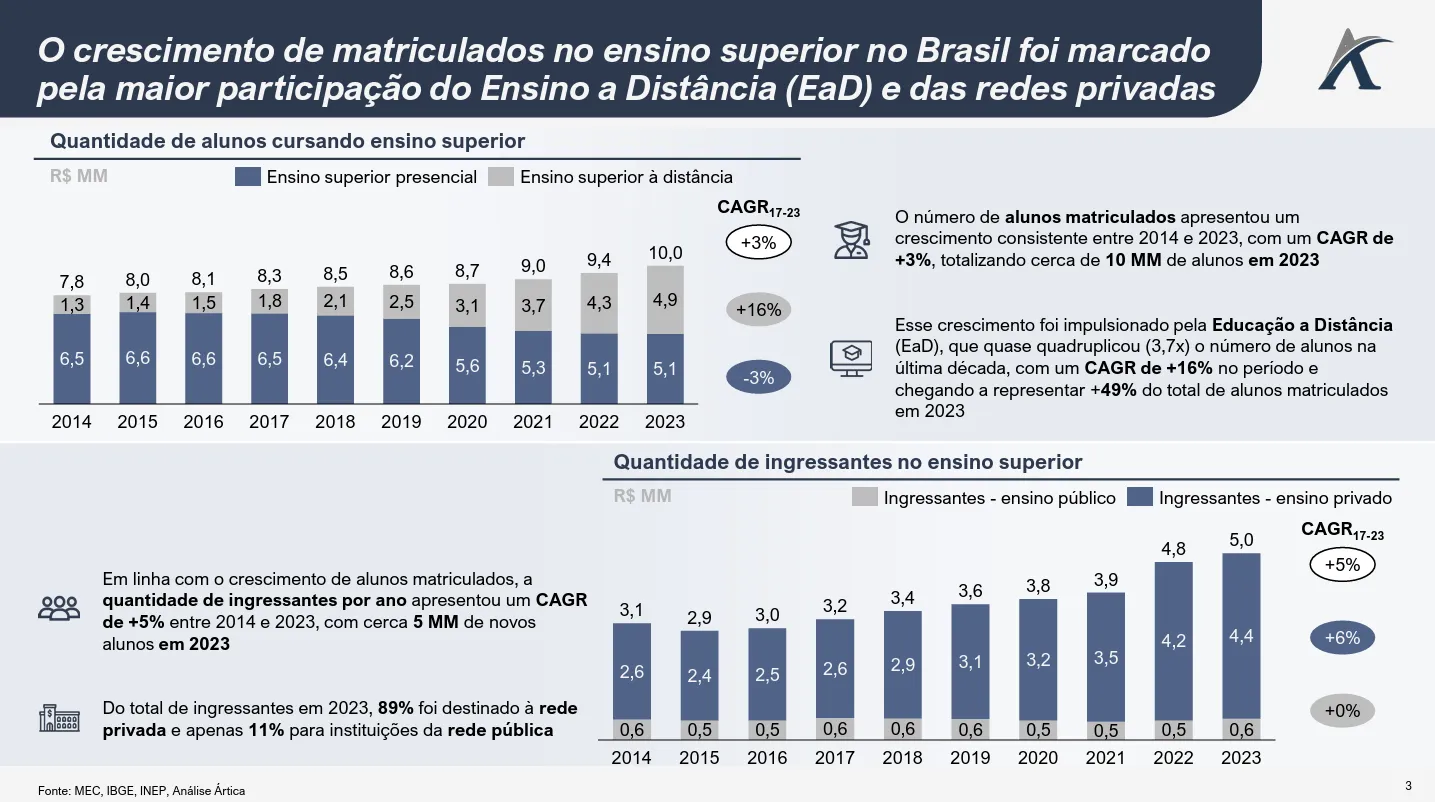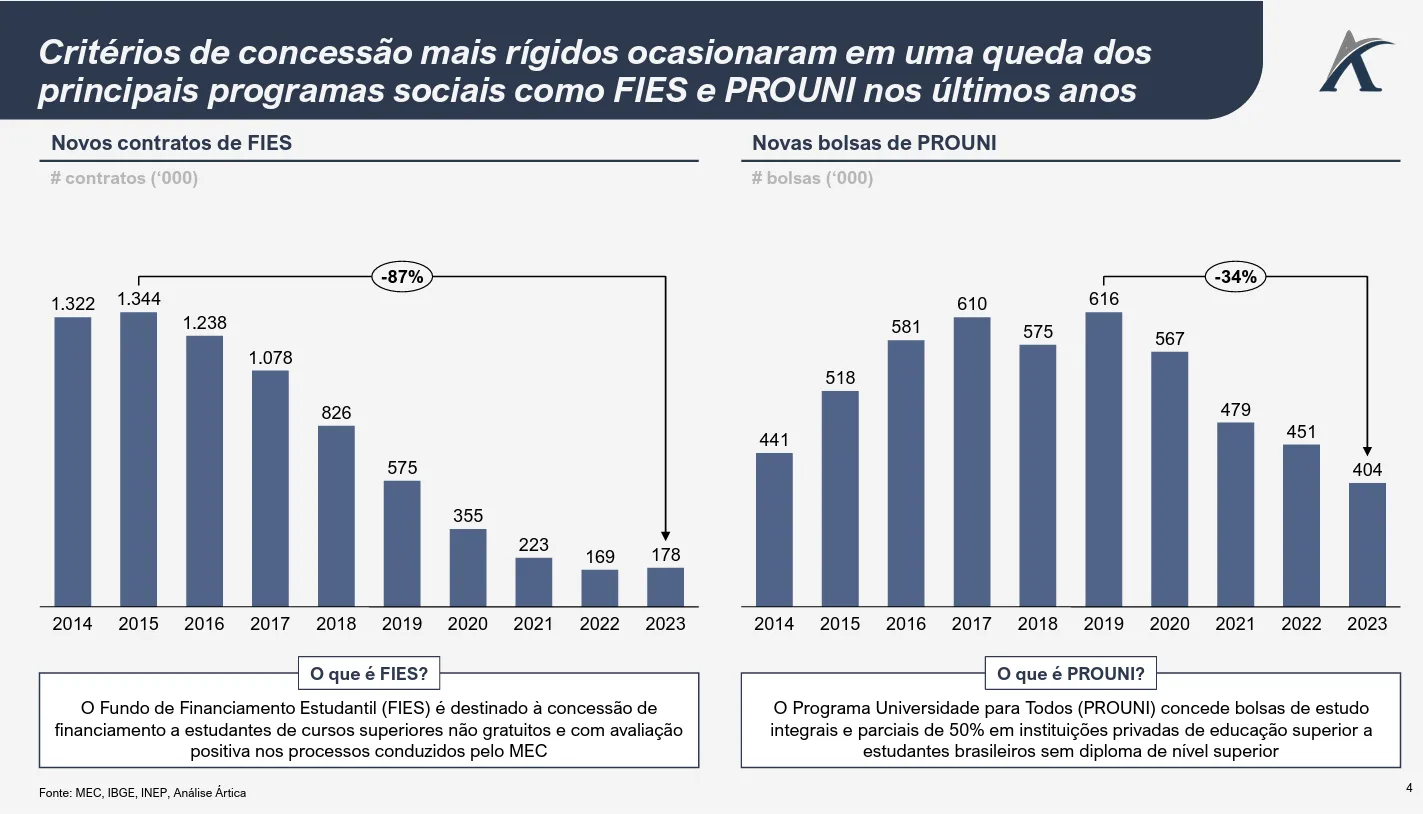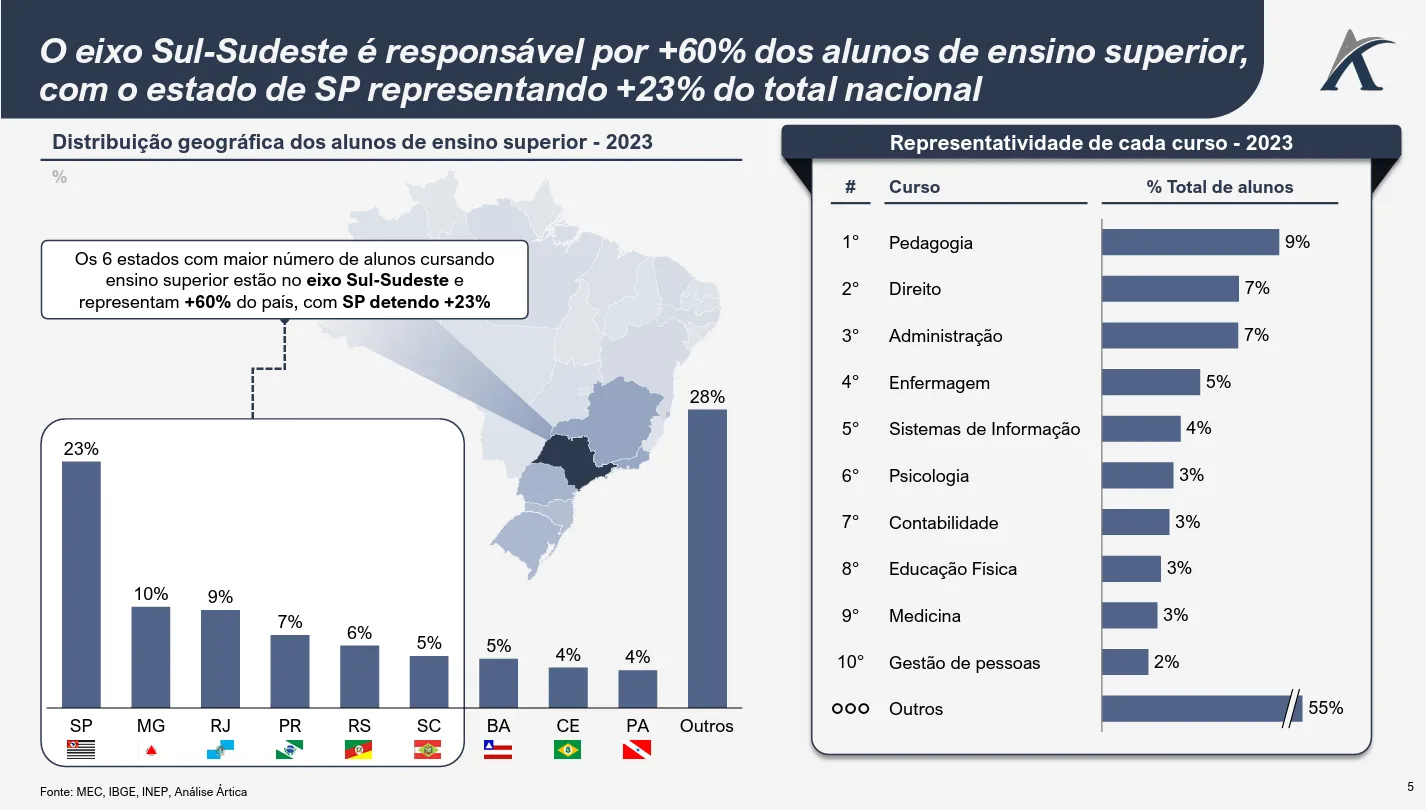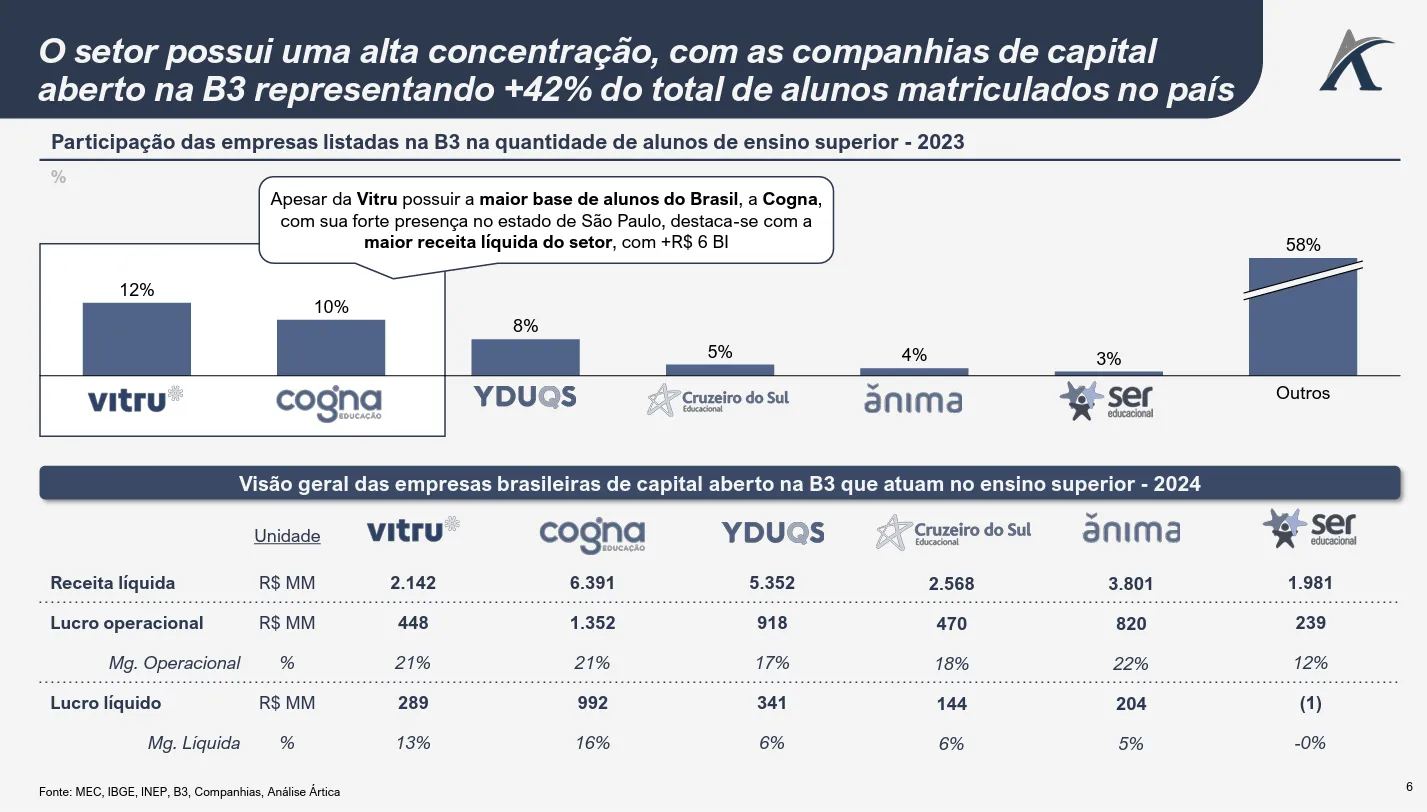Higher education in Brazil has undergone a significant transformation in the last decade, with the transition from a predominantly in-person model to a growing adoption of Distance Learning (DL). Over the past 10 years, the number of students enrolled in distance learning courses has grown 3.7x, representing, in 2023, +49% of the total 10 million students.
The South-Southeast region stands out as the main concentration hub, encompassing over 60% of enrolled students, with the state of São Paulo accounting for over 23% of the national total. Regarding fields of study, education, law, and administration lead in enrollment, totaling over 17% of the total. Furthermore, the sector is largely dominated by private education networks, with publicly traded companies on the B3 (six in total) accounting for over 42% of the total enrollment in the country.
In today's pill, we present an overview of higher education in Brazil, analyzing the changes in the sector's dynamics, as well as the impact generated by social programs (FIES and PROUNI) in the last decade.









